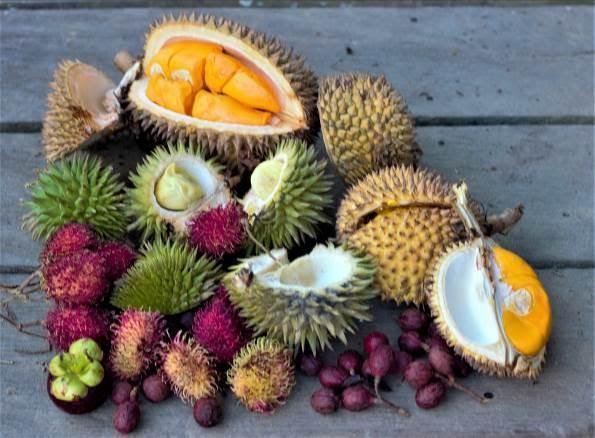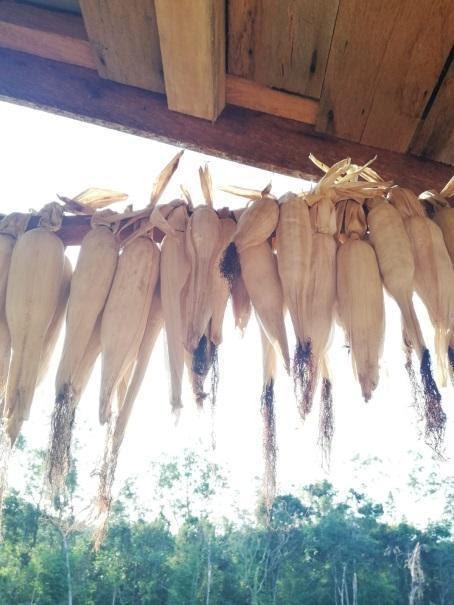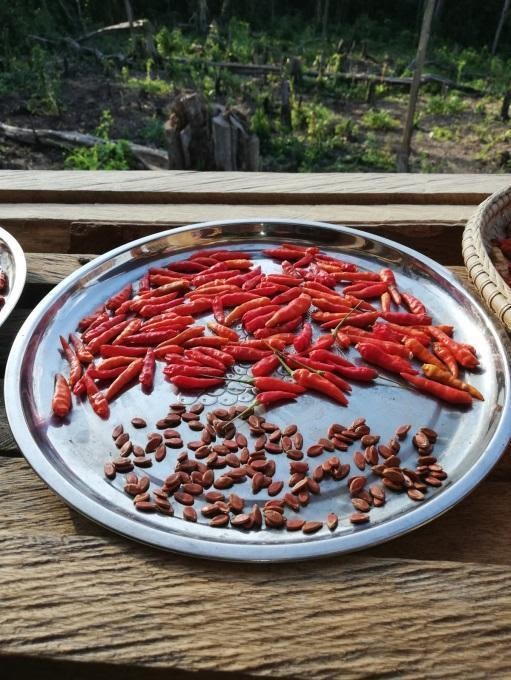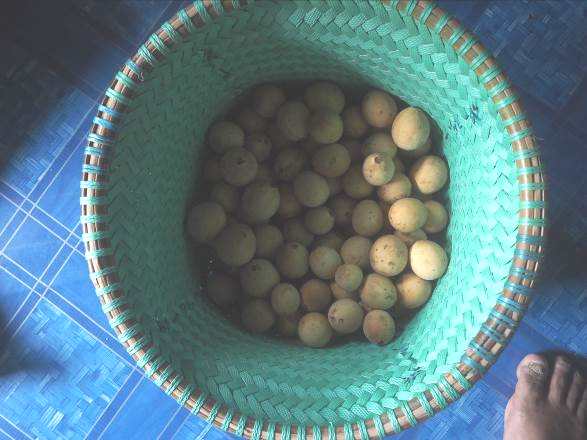Project Summary
The establishment of community seed banks in Manuhing Raya will enable the Dayaks living in and from the forest to continue their traditional agriculture. These strengthened communities provide protection against the further spread of industrial palm oil plantations and ultimately guarantee the preservation of the biodiversity of the rainforest in Borneo.
Project Manager
Country
Indonesien
Status
ongoing since 2021
Budget
27.300€ (2021-2023: Merz Foundation)
30,000$ (2022-2024: Crop Trust)
Links
Partners
Ursula Merz Stiftung
Weltladen Hofheim
Glas Henrich
Crop Trust
Project goals
Construction of a community seed house in Manuhing Raya
Training of at least 50 farmers on seed management and biodiversity
Knowledge sharing between smallholders and stakeholders (government, supporters and other NGOs) through the publication of articles and the further development of a website containing photos and descriptions of various species of local crops in Manuhing Raya sub-district.
Standy Christianto is a graduate of the Bonn Master programme Agricultural Science and Resource Management in the Tropics and Subtropics. After graduating, he moved back to his home country in Indonesia in 2019 and took up a position at the Borneo Institute (BIT), a civil organisation founded by indigenous people on Borneo, the Dayak. BIT works to preserve the ecosystems and rights of the Dayak on Borneo.
The island of Kalimantan (Borneo) is known for its huge palm oil plantations and the ecological damage they cause. Not only is the orangutan’s habitat disappearing due to the unabated expansion of the plantations, but many native plants are also threatened with extinction. The loss of biodiversity has a fatal impact on the Dayak’s way of life and social fabric, because they live off the rainforest’s natural resources and at the same time protect it.
The Dayak practice a traditional method of agriculture. They collect seeds of indigenous crops and grow them in small fields. They rely on a natural occurrence of these plants in the local area, but because of the thinning and fragmentation of the rainforest by palm oil plantations, the Dayak now have to walk long distances to find their seeds. As a result, the Dayak resort to modern hybrid seeds, which they buy from markets and traders. However, these modern varieties require completely different cultivation methods. They need fertiliser and pesticides to thrive as desired, and in most cases they are not adapted to local ecological conditions. As agriculture is central to the Dayak’s daily life, its “modernisation” also entails a change in individual and social lifestyles. Traditional festivals based on the agricultural calendar, the distribution of roles and tasks within the community, traditions between old and young are all being overturned, and as a result, communities are breaking apart and more young Dayak are leaving the villages in the forests or seeking low-paid work on the palm oil plantations.
This in turn has consequences for the protection of the rainforest. The Dayak live on an intact ecosystem, they maintain it and their communities form a barrier against the otherwise unchecked expansion of industrial palm oil plantations and ecosystem destruction. The conversion of traditional to “modern” agriculture tears apart their intra-community social fabric. They leave the forest villages or seek work on the large plantations, and in the medium term the Dayak communities living in the forest thus lose their function as protectors and caretakers of the rainforest.
To break this vicious circle, it is necessary that the Dayak can continue to practise their traditional form of agriculture, despite the pressure from the palm oil industry. Standy’s project aims to create one of the conditions for this: Availability of traditional seeds. In his first project managed by him, a community-managed seed bank is to be established in the Manuhing Raya region of Central Kalimantan. This communal “seed house” will be used by at least 100 farmers from three villages. It will have a capacity to store 50 plant species and will enable the Dayak to store their own propagated seeds without loss and with a longer shelf life. If the farming families need additional seeds for cultivation, they can take them from the seed bank, or if they need money in emergencies, they can sell their seed deposit. The seed house thus serves as a buffer against ecological as well as economic losses. At least 50 villagers are trained in the management of the community seed bank, which includes ecological biodiversity management as well as financial training.
Standy’s project shares its overall objectives with similar projects in other regions of the world where community seed houses are being established. They aim to (1) strengthen knowledge of diversity-based farming systems, (2) increase the resilience of natural agro-ecosystems to environmental change through the participatory method, and (3) enhance the role and expertise of women in particular in the selection, production, storage and distribution of seeds in farming communities.
The other prerequisite for protecting the rainforest by strengthening Dayak communities is, of course, to grant land rights to smallholders and defend them against the palm oil industry. In another project, BIT is pursuing this approach, using as documentation the website: www.borneologi.com. This site, which is under construction, is now being used to publish results from Standy’s project as well.









